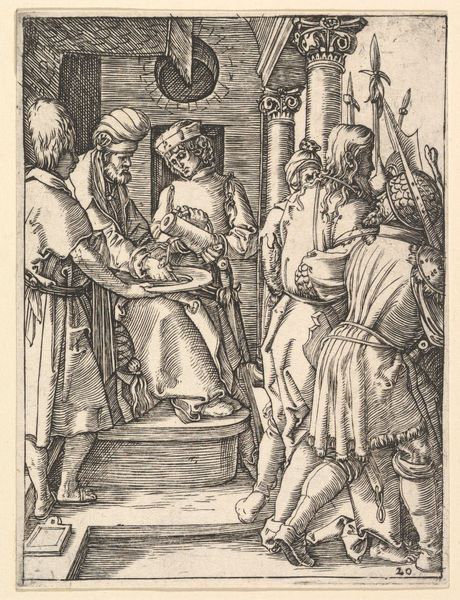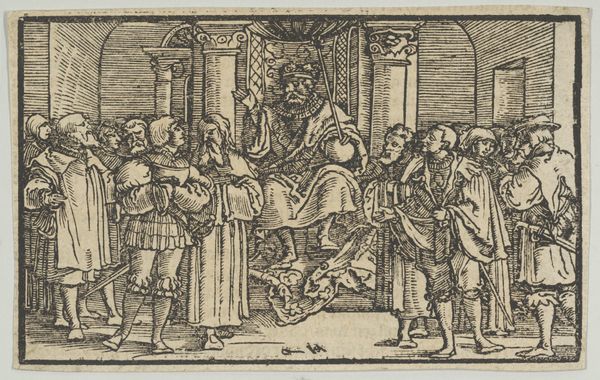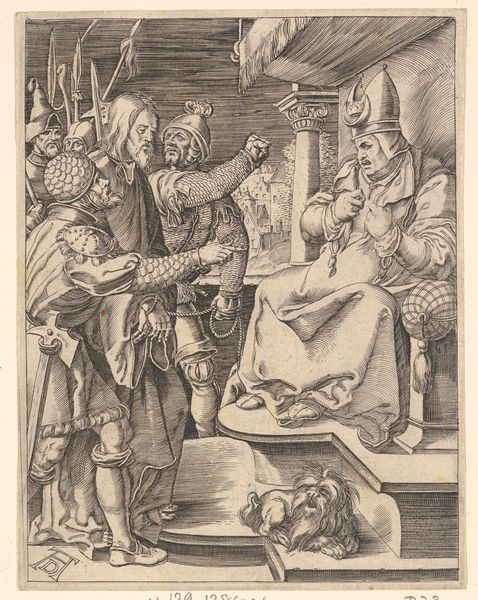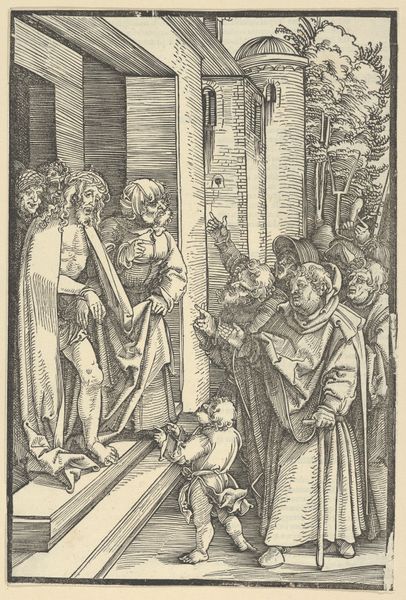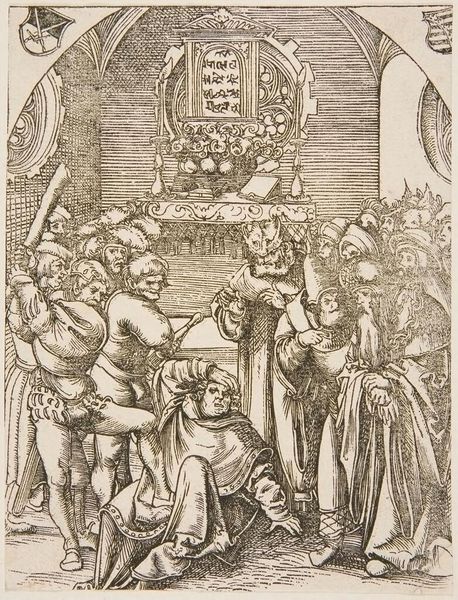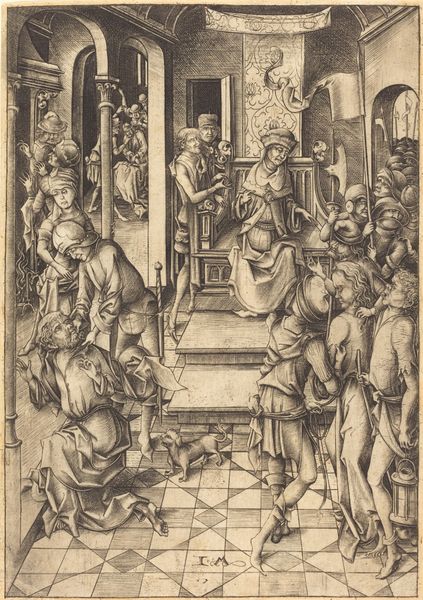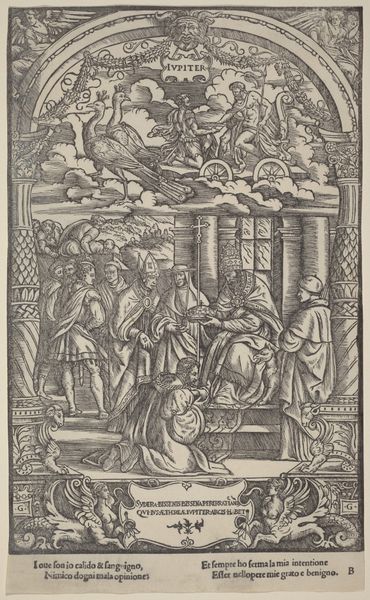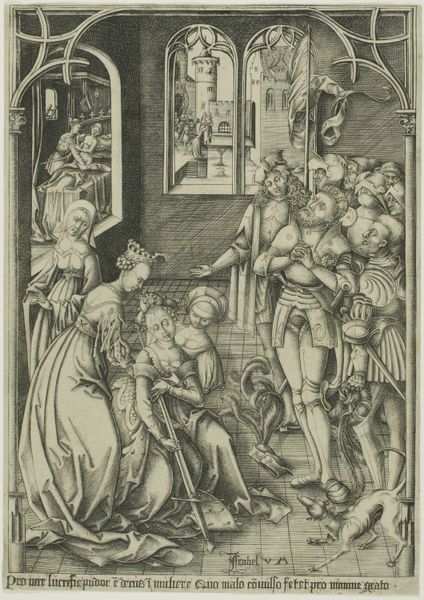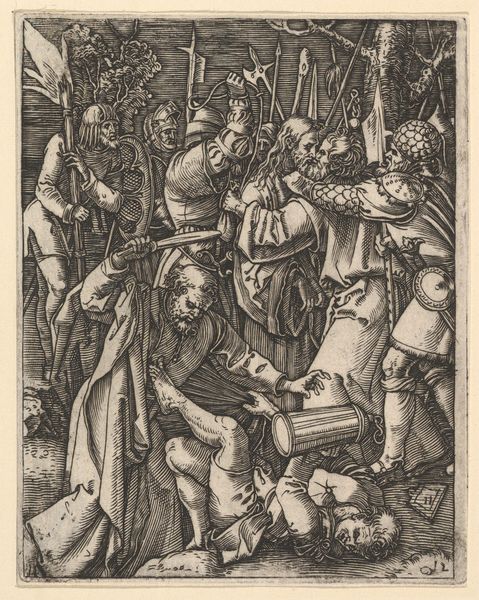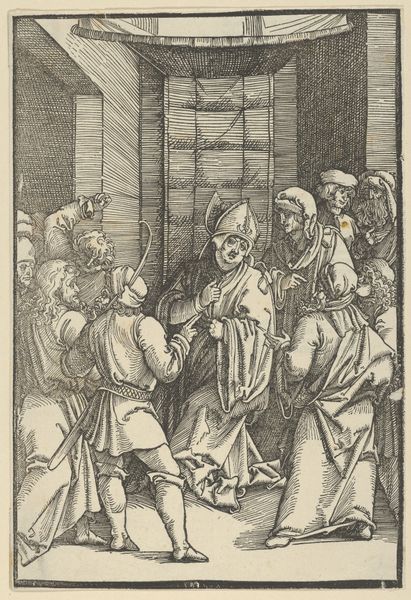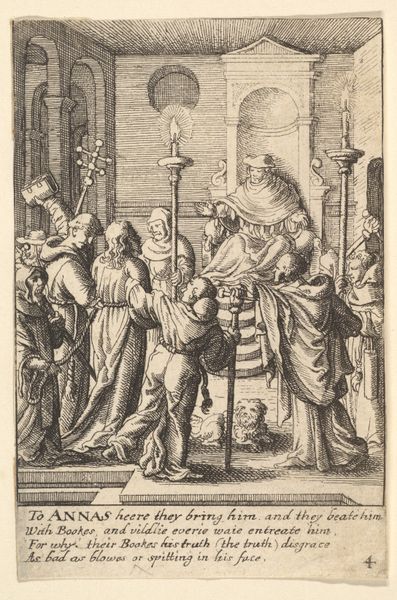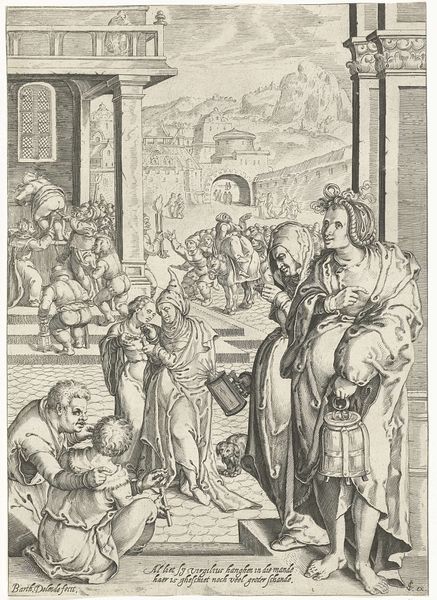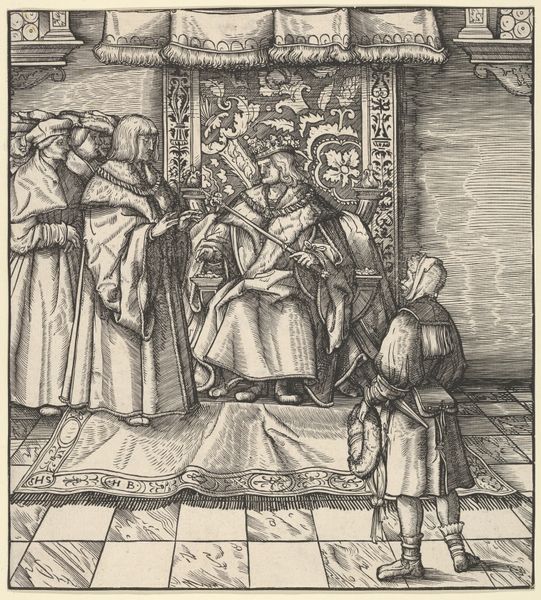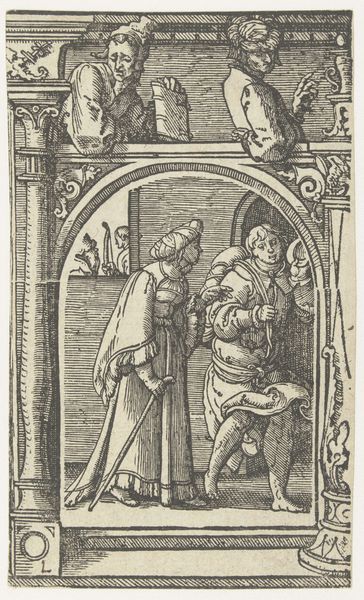
Jude, from the Martyrdom of the Twelve Apostles 1472 - 1553
0:00
0:00
drawing, print, woodcut
#
drawing
# print
#
pen illustration
#
figuration
#
soldier
#
woodcut
#
history-painting
#
northern-renaissance
Dimensions: Sheet: 6 3/8 × 4 15/16 in. (16.2 × 12.6 cm)
Copyright: Public Domain
Editor: Here we have Lucas Cranach the Elder's woodcut, "Jude, from the Martyrdom of the Twelve Apostles," dating sometime between 1472 and 1553. It depicts a rather brutal scene, and what immediately strikes me is how much detail he manages to pack into such a small space using only lines. What do you see in this piece, beyond the obvious violence? Curator: Ah, yes, Cranach doesn't shy away from the gritty details, does he? But beyond the martyrdom itself, I see a fascinating commentary on power, or perhaps, its fragility. Look at Jude's pose, slumped and vulnerable. He’s physically overpowered, but observe the expressions on the faces in the crowd. Some seem almost hesitant, questioning the act. Perhaps Cranach is suggesting that brute force doesn't necessarily equate to moral authority. What do *you* make of that inscribed tablet looming over the scene? It's almost mocking the brutality. Editor: It's like the law or some divine mandate turned complicit by its silence! Are you suggesting that Cranach is critiquing the institutions of his time? Curator: It’s a possibility! The Northern Renaissance was a time of questioning, wasn't it? This wasn't just a pretty picture; it was a statement. Also, look at the architectural details, the almost oppressive weight of the arches. Do they evoke a sense of confinement, of being trapped within a system? It adds another layer to the narrative, don't you think? Editor: I hadn't thought about the architecture that way, but now that you mention it, the arches *do* feel quite claustrophobic. It’s almost as if the figures are trapped within the frame and their fate. This gives the work a more complex tone, going beyond just historical documentation. Thank you, this work now feels anything but one-dimensional. Curator: Exactly. Cranach has created not just an image, but a mirror, asking us to confront the uncomfortable truths about human nature. Now, who wants to go for a coffee to contemplate?
Comments
No comments
Be the first to comment and join the conversation on the ultimate creative platform.
